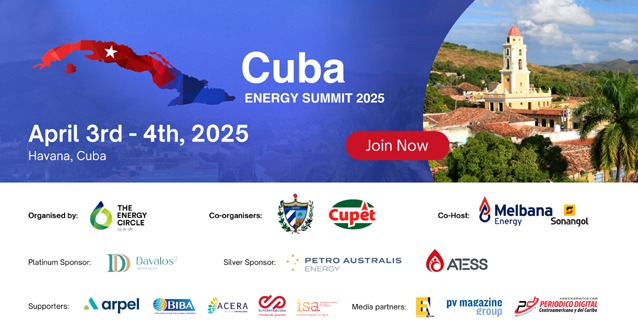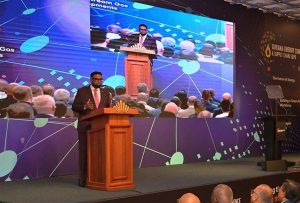
The Inter-American Commission on Human Rights (IACHR) released a report yesterday on human rights violations by state security forces during protests in Peru last December. The protests occurred during and following the political crisis that resulted in former president Pedro Castillo being removed from power. The IACHR report alleges “grave episodes of use of excessive force” and extrajudicial killings that “might also amount to a massacre.” More than 60 died during the protests amid confrontations between soldiers, police, and protestors, notes Reuters.
International Crisis Group’s Glaeldys González covers the report on Twitter, noting a “disproportionate, indiscriminate and deadly” response from state security forces against protestors in Lima, Ica, Juliaca, Arequipa, and Cusco. González adds, “Reparations measures should adopt a gender-sensitive approach than recognizes the differential impacts on women survivors of violence who are left to provide for their households, without a stable source of income.”
IACHR’s report follows investigations and commentaries regarding the Peruvian state actors’ use of excessive force from other human rights organizations, including Human Rights Watch, Amnesty International, and WOLA, among others.

Regional
- The 2023 World Press Freedom Index, published yesterday by Reporters Without Borders, noted that “most of the Index questionnaire’s respondents reported that political actors in their countries were often or systematically involved in massive disinformation or propaganda campaigns.” Across the Americas, “The use of disinformation and propaganda, often associated with online verbal violence against journalists and the media, is being normalised and becoming an integral part of political leaders’ strategy in seeking greater control over the public narrative.”
El Salvador
- In Americas Quarterly, Ricardo Valencia highlights the likelihood that many American citizens have been affected by, and potentially even detained, during the roundup of alleged gang members under Bukele’s state of emergency.
Migration
- Mexico has agreed to continue to accept migrants returned from the United States following May 11, when the pandemic-era Title 42 policy expires, reports Reuters.
- In an op-ed in El País, Dan Restrepo and Marshall Fitz argue that “to effectively maximize the benefits and mitigate the risks of migration requires multiple, bold, scaled responses — at the border, in the Americas, and in the United States.”
Colombia
- La Silla Vacía reports that at least 1,000 of Gustavo Petro’s 83,000 electoral witnesses were paid for their work during the campaign, and that these payments were not filed with the Consejo Nacional Electoral (CNE).
Paraguay
- Though Paraguay’s opposition protested the results of Sunday’s election, the Organization of American States (OAS) and Paraguayan election officials confirmed that proper election procedures were implemented and followed, and that there were no inconsistencies with the election results, says Al Jazeera.
- Despite winning the presidential election by a large margin, Santiago Peña “will face a country that is unconvinced of his leadership—absenteeism was close to 40%—and will have to work with a highly fractured Congress, including divisions within his own party,” writes Lucien Chauvin in America’s Quarterly.
Ecuador
- “Ecuador received a guarantee from the Inter-American Development Bank to help it potentially swap up to $800 million of its sovereign bonds in return for boosting conservation of the Galapagos Islands, in what would be the largest deal of its kind if completed,” according to Bloomberg.
Guatemala
- Gustavo Meoño, former leader of the Army of the Poor guerilla, had a warrant issued for his arrest on Wednesday, given his role in a bomb attack carried out in 1980, reports ABC News.
Brazil
- “Over four years in office, former President Jair Bolsonaro tried to convert a country with few weapons into one where firearm ownership and lack of regulation meant personal freedom. Now, his successor Luiz Inácio Lula da Silva has been moving to undo Bolsonaro’s pro-gun policies, and that starts with requiring gun owners to register their weapons with police. After initial resistance, he started seeing some success,” reports AP.
Argentina
- In National Interest, Scott MacDonald outlines the opportunities that lithium mining can offer Argentina, notes the differences between the dirigiste and statist models of management of the sector, and explains China’s influence on the sector’s development.
- A new report by Fundar found that 80-90% of the transgender, travesti, or non-binary community in Argentina is not employed in the formal job market, and faces additional hurdles in the job search process due to their identities.
Venezuela
- Venezuela reported a 204.65% increase in Dengue cases between January and February of 2023, as compared to the same period last year, reports Crónica.
Mexico
- “Mexican officials celebrated Wednesday the announcement that the country finally developed its own COVID-19 vaccine, more than two years after inoculations from the U.S., Europe and China were rolled out. It was unclear what use would be made of the vaccine,” notes AP.
Arianna Kohan y Jordi Amaral / Latin America Daily Briefing
http://latinamericadailybriefing.blogspot












